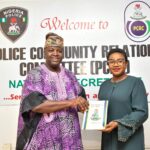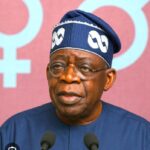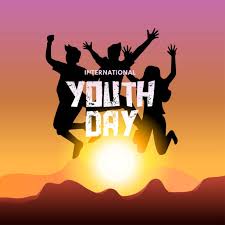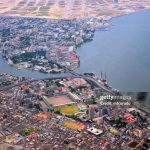By Opeyemi Ibitoye
Young people are not just the promise of the future; they are the pulse of the present. With roughly 60% of Nigerian population under the age of 25, young people form the largest demography in the country. Their energy, creativity, and boldness are shaping conversations on governance, justice, climate action, and social transformation – advancing ideas that not only suit their needs but protect the coming generation – a great sign of strength Here lies the paradox: while their numbers and ideas make them politically and socially powerful, systemic barriers and the slow nature of policy processes often test their patience, commitment, and influence.
This huge number also means a significant number of Nigeria’s registered voters are young, giving them the potential to influence elections, demand reforms, and push national agendas. The 2020 #EndSARS protests against police brutality showed how coordinated youth action could force a national reckoning, and its ripple effects were felt during the 2023 elections. The “Not Too Young To Run” law, passed in 2018, lowered the age limit for elective offices, making it legally possible for more young people to run for leadership positions.
From 17-year-old Amara Nwuneli winning the Earth Prize for turning a Lagos dumpsite into a green space, to Healthy Food Policy Youth Vanguard, officially inaugurated in 2024, have been at the fore of mobilizing and leading policy discussions for effective food policies in Nigeria, including policies like taxes on sugar-sweetened drinks, setting salt target for ultra processed food, marketing regulations on junks and proper product labelling.
In 2024, Youth Vanguard conducted a survey in seven (7) states in the country to collate and analyse industry narratives/ tactics in promoting habitual consumption of unhealthy food/ ultra processed products in the country, which led to the publication of a report titled “Junk on our plates” in May 2025. Nigerian youth are proving that innovation and activism are inseparable. These stories illustrate that advocacy is also creative problem-solving and strategic way of engaging in policies actions for public good.
Policy advocacy is a long journey – it takes a long time to secure buy-in for the right policies, even longer to implement and see the effects, testing the attention span of young people and limiting consistent support for policies. Advocacy wins are often slow and incremental. Legislative reforms can take years, budgets may be delayed, and implementation is rarely immediate. For young advocates, sustaining momentum during these “silent” periods is one of the greatest challenges.
To change this, youth institutions need to be strengthened, with adequate funding and authority to ensure their voices are influential in decision-making. Policy conversations must be made accessible through town halls, social media engagement, and inclusive consultations, as seen in the 2025 National Youth Conference model that mandates gender balance and disability inclusion.
Nigeria’s youth story is part of a global pattern, from climate strikes in Europe to pro-democracy movements in Asia and Africa. They stand at the intersection of tradition and transformation. They imagine what others dismiss as young people everywhere are reshaping democracy, challenging inequality, and leading humanitarian innovation. The message is clear: youth are not just the leaders of tomorrow; they are the leaders of now. And the world needs their energy, impatience, and creativity to push for justice, equity, and progress.
They are impatient, but that impatience brings urgency to the issues that cannot wait. Yes, change may be slow, but when youth stay engaged, their steady impact becomes impossible to ignore. In Nigeria, as in the rest of the world, youth advocacy is not about waiting for the future, it’s about building it now.
Opeyemi Ibitoye writes from Abuja, where she is leading Nigeria’s foremost youth movement for healthy food.
.Ibitoye is a public affairs analyst and wrote in from Abuja.












